Protest-riddled Ecuador declares 'state of exception' in three provinces
Ecuador's president has declared a state of exception across three flashpoint provinces, in a bid to calm protests invoked by the country’s indigenous community against rising prices.
President Guillermo Lasso announced the restrictive measures late on Friday, identifying the affected provinces as Imbabura, Cotopaxi, and Pichincha, which includes the capital Quito. The measures will last for 30 days.
"I called for dialogue and the answer was more violence, there is no intention to find solutions," Lasso alleged in a televised broadcast, during which he announced the state of exception.
Ecuador is grappling with a rising inflation, which has almost doubled the fuel prices, as well as unemployment and poverty.
The country has plunged into protests by the indigenous people, who make up more than a million of its 17.7-million-strong population. The demonstrations have so far found supporters among students and workers.
Earlier this week, nearly 1,000 people rose up in protest in the capital Quito, trying to tear down metal fences that surround the presidential headquarters.
Clashes with security forces have injured at least 83 people, and led to 40 arrests. Some police officers have also been detained by protesters across the country.
In order to appease the protesters, the president said he would subsidize fertilizer costs by 50% for small and medium farmers, and freeze fuel prices at their current level. Lasso also said he would order the public bank to forgive overdue loans worth up to $3,000, and give the small farmers more time to pay their debts.
The palliative measures have, however, failed to calm indigenous outrage.
Leonidas Iza, president of Ecuador's CONAIE indigenous organization, said Lasso's proposals partially resolved the issues, but doubted they would be implemented.
"From this moment we are preparing to mobilize and reject these policies in Quito," he said.
Lasso's decree also empowered him to mobilize the armed forces to maintain order and declare curfews.
"I am committed to defending our capital and our country," Lasso said on television.
Indigenous protesters in Ecuador despite state of exception
Later on Saturday, indigenous protesters demanding cheaper fuel in Ecuador defied a state of exception and pressed on with road blockages now in their sixth day.
A day after President Guillermo Lasso announced the restrictive measures, police said Indigenous people kept up protests in most of the country's 24 provinces, including three where the president declared the state of exception.
Ecuador has been hit by rising inflation, unemployment and poverty exacerbated by the coronavirus pandemic. Fuel prices have risen sharply since 2020, almost doubling for diesel from $1 to $1.90 per gallon (3.8 liters) and rising from $1.75 to $2.55 for petrol.
The demonstrations have blocked roads across the country, including highways leading into the capital Quito. Talks with the president failed to end the demonstrations.
China expands use of Iranian rail corridor for cargo transit
Ukraine’s Zelensky says open to dropping NATO bid for security guarantees
Israel kills 3 in south Lebanon as it threatens ‘wide-scale’ attack
VIDEO | Iran’s mega solar plant to power 2.5 million homes
Hamas warns against Israel's plans to 're-engineer' Gaza
VIDEO | South Koreans join migrants in Seoul to protest on Migrant Workers' Day
VIDEO | Press TV's news headlines
VIDEO | Iraq, UN officially mark end of UNAMI mission in country


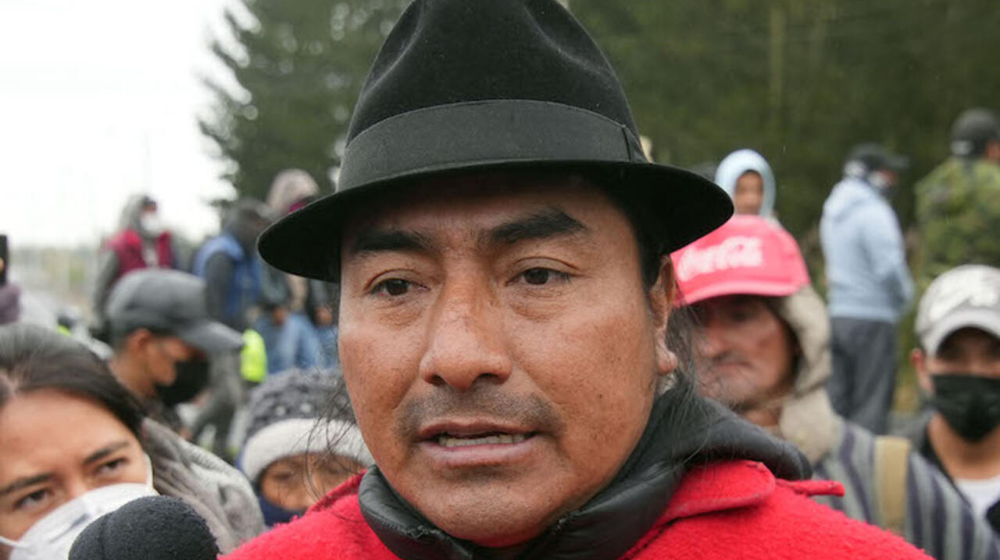

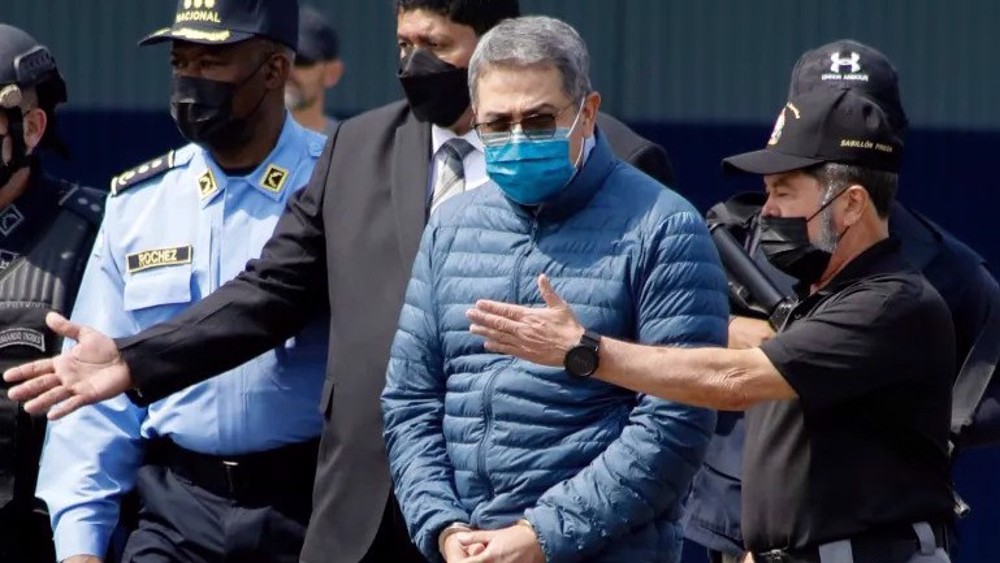
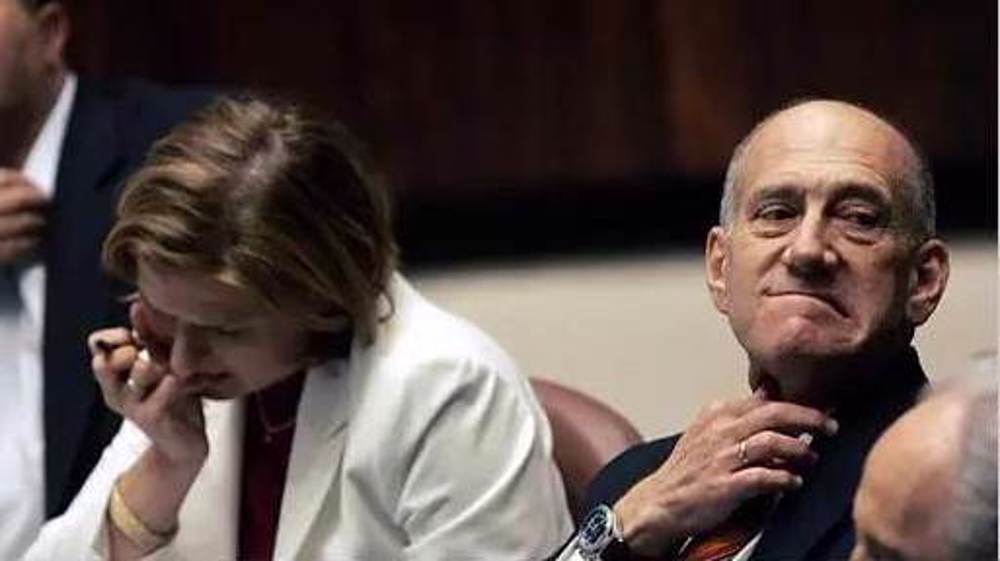



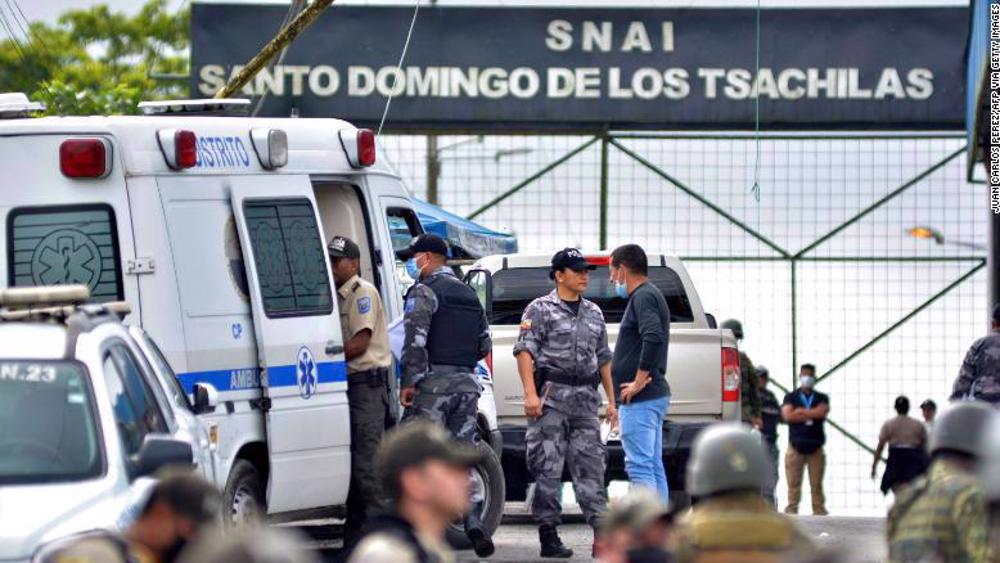
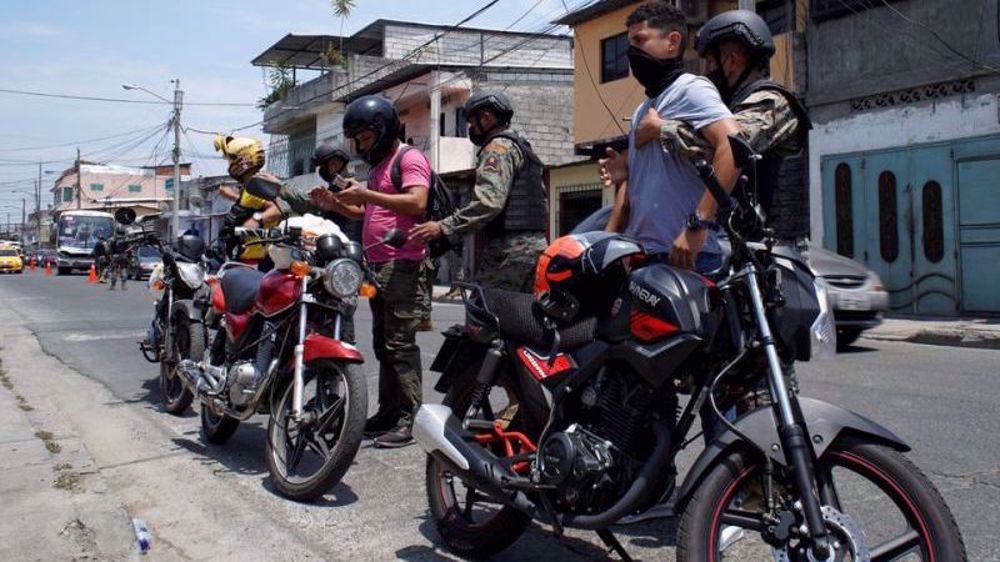
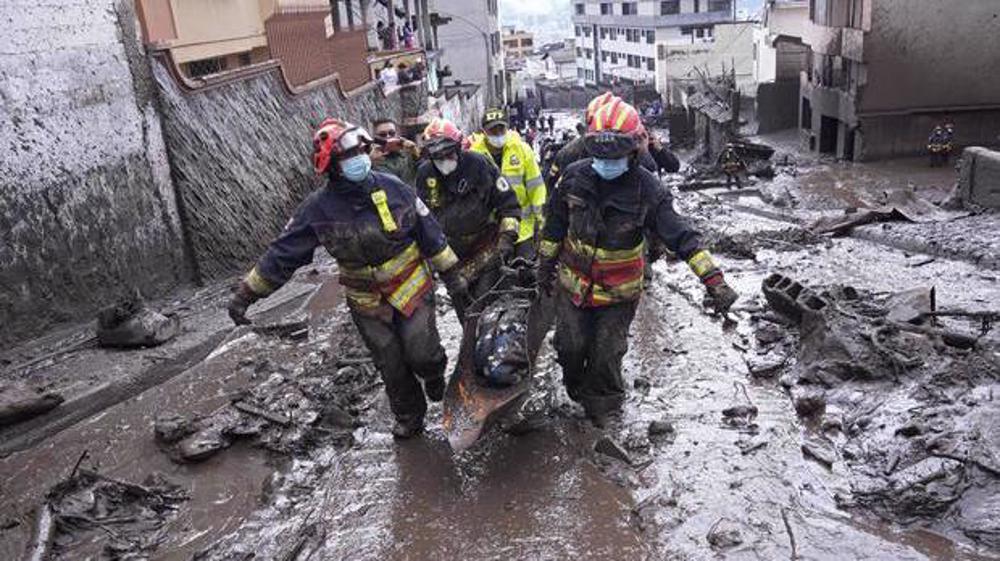

 This makes it easy to access the Press TV website
This makes it easy to access the Press TV website